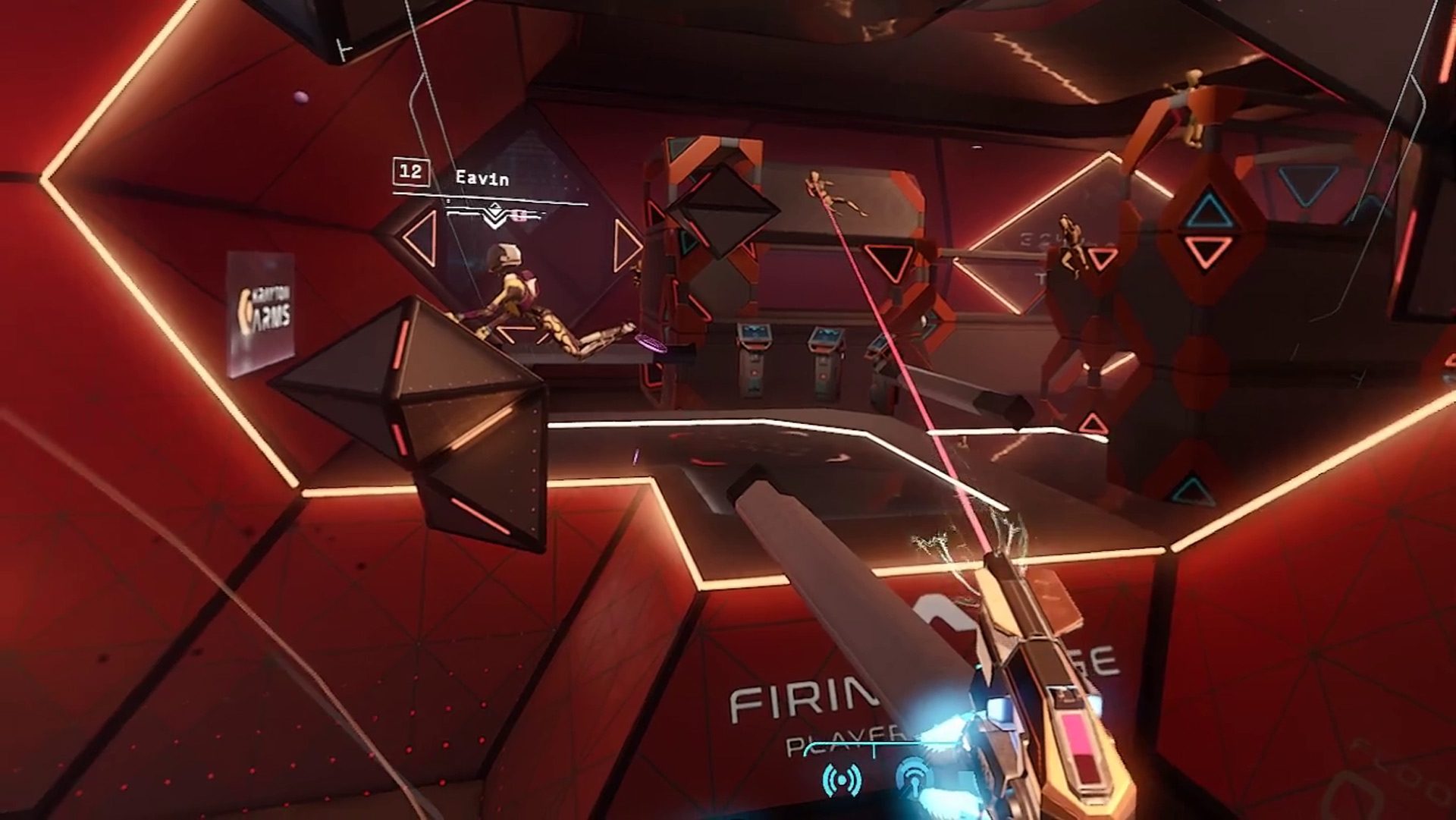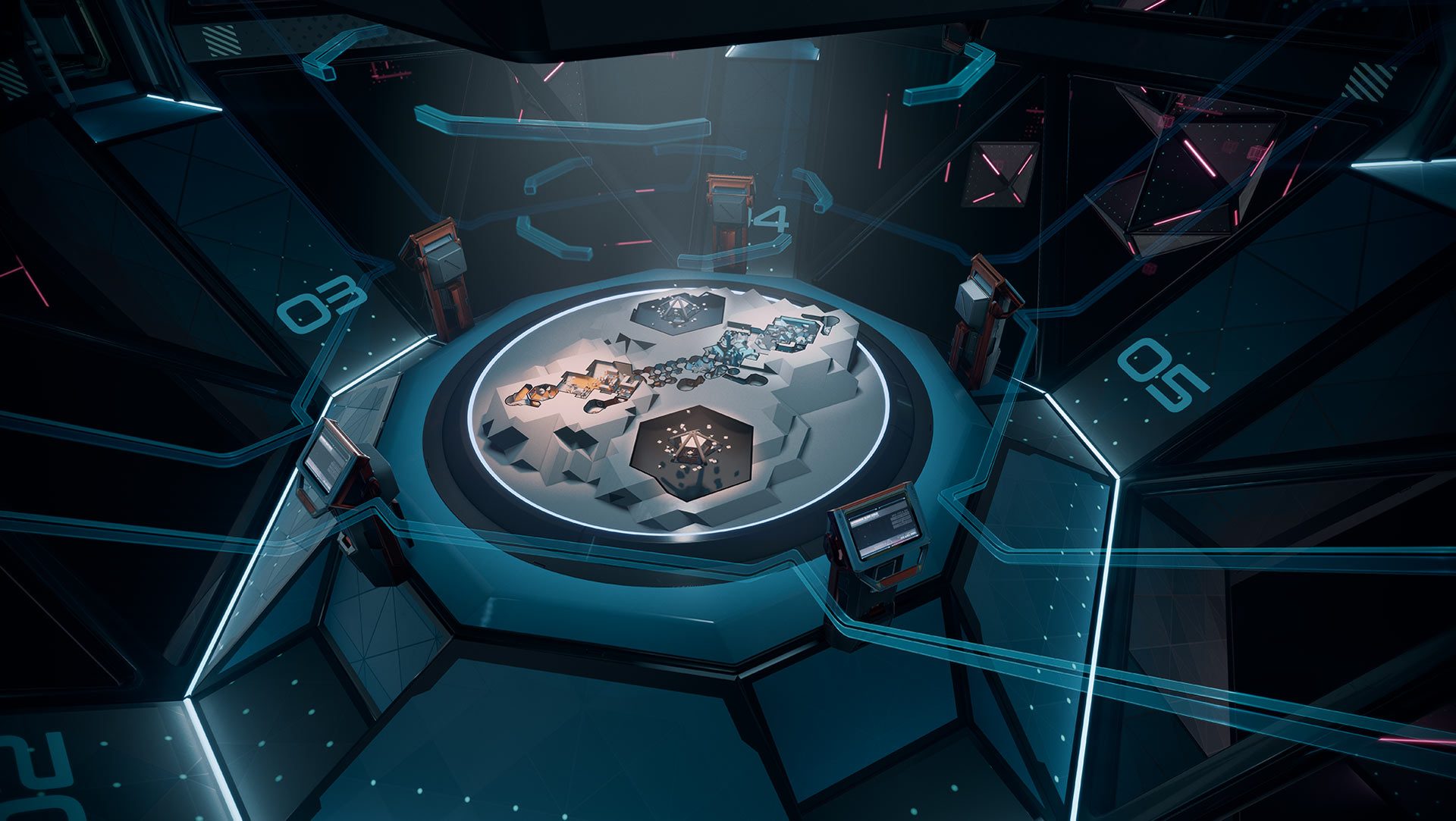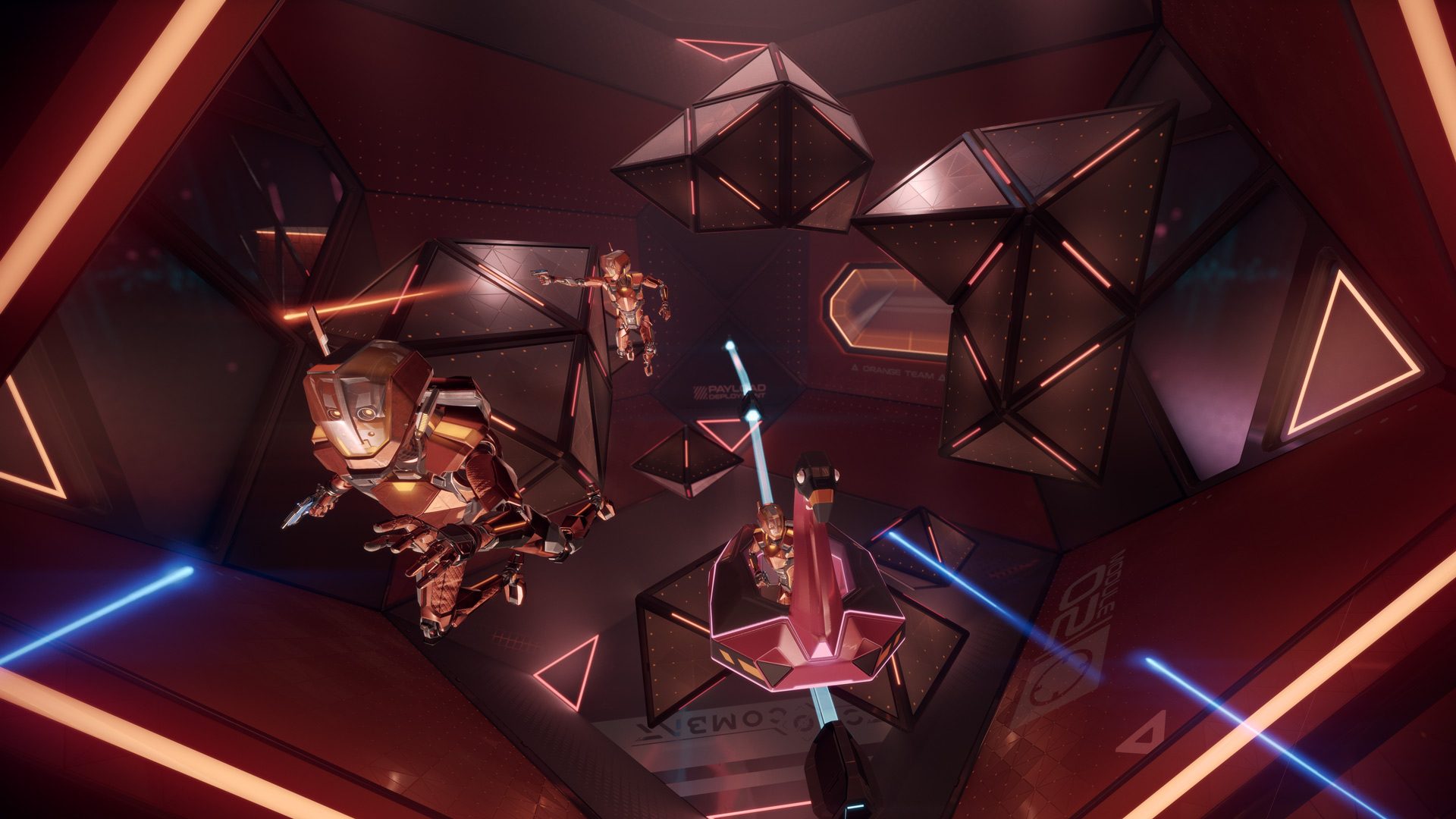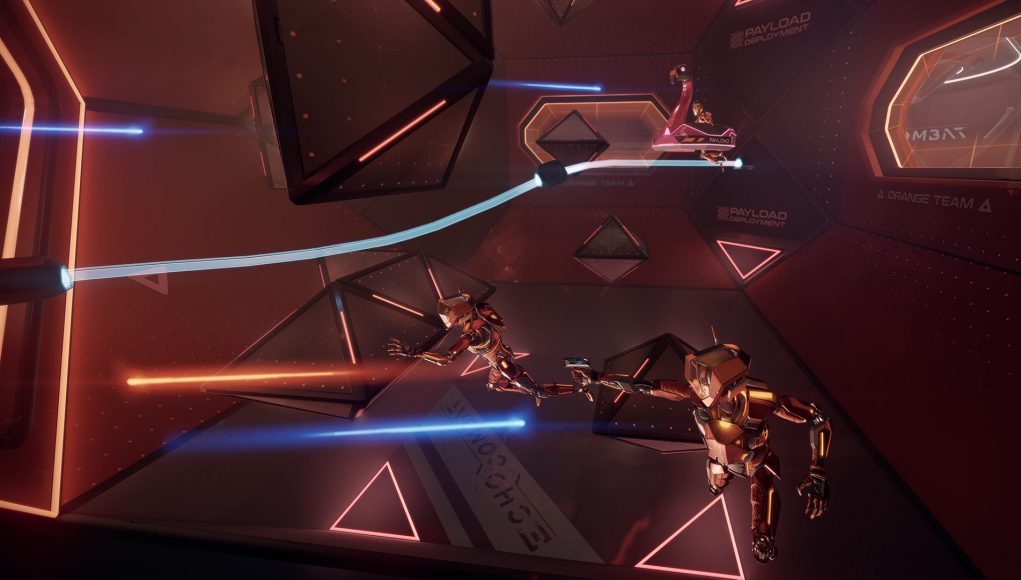Ready at Dawn, the studio behind zero-g adventure Lone Echo (2017) and its companion multiplayer sports game Echo Arena (2017), held a closed beta session with their upcoming Oculus Rift expansion Echo Combat last week. Given a beefier-looking avatar and a few guns—reflective of my new goal of disintegrating the opposite team members with impunity—the game essentially presents you with a gametype that fans of Team Fortress 2 (2007) or Overwatch (2016) will instantly recognize: payload—push the cart on a track through the winding maze, or defend the advances of the cart by pushing it backwards and running down the clock.
Before getting into the gameplay aspect of matches though, let’s first talk about the lobby, the place where you can practice and learn the finer points of the game before foisting yourself into a match. This is where you learn to use the game’s zero-G locomotion style which lets you move through the world by physically grabbing onto structures (and people) and pushing off with your hands. Echo Combat features the same amped-up version of this seen in Echo Arena, and it’s an absolute joy to see it in the context of a shooter, as it’s both comfortable and extremely immersive—making you forget that you’re actually in your apartment punching that stupid lamp and loudly cursing at 3 AM.
Awakening in the new lobby for the first time, I was immediately struck by the size of the place now that the doors to Echo Combat are open; it feels at least two times as large as the lobby was before, and is filled with spaces to chat, customize your avatar, or practice shooting.
The shooting gallery, which features a few structures stocked with moving dummies, has a console where you can change your guns and see what effect each gun has on the dummy’s health bar. Currently there are three guns available: a one-handed shotgun (Nova), an automatic laser pistol (Pulsar), and a powerful semi-auto railgun pistol with a laser sight (Comet), a gun that features both a charge-up and cool-down time.

You’re also given a single, slowly respawning detonator grenade that you can pull from behind your back to do further damage. A second ordinance weapon was greyed out, so there’s likely to be something else to choose from in the future. Additionally, you have one of two secondary abilities at your disposal—group health regeneration, or a threat scanner that can temporarily reveal enemies from behind walls. All of these things are pretty well understood in traditional shooters, so anyone familiar with Team Fortress 2 should immediately grasp the gametype.
After screwing around in the shooting gallery, I was ready to head back to the main hall of the lobby to search for a match. Like Echo Arena, there’s a miniature version of the map available in the lobby, so you can exchange the finer points with other players. Since nobody really knew what they were doing at this early point in the game’s life, most of us just gawked and shrugged our shoulders, hitting the ‘find match’ button on the lobby’s console, and starting without a care for strategy.

Randomly assigned, I first started on defense, which gives you a head start to make your way to the enemy’s farthest spawn point, the first of many checkpoints between the payload and its goal on the opposite end of the map. After being absolutely amazed at the size of the map, which features strategically placed choke points, multiple side areas, and plenty of nook to hide in and behind, I finally make my way to enemy spawn to see the cart is actually a big pink flamingo, like an oversize version of the pool inflatable. Grabbing onto the flamingo, you automatically push it in the desired direction on its glowing blue track.
Like Echo Arena, there’s also a few launch tubes available to get you back into the action a little quicker.

It seems everything comes in threes with Echo Combat. You have three minutes on the game clock to battle in the three vs. three match, with three guns to choose from.
It’s important to pick the right gun too, because you can only swap out when you spawn in the small waiting area during matches, and because the guns are physically integrated into your robot hands, you can’t pick up an enemy’s gun or dual-wield either. While I was initially hoping for more than just three single-handed guns, I get the sense that the studio thought long and hard about making every choice a team-based decision, and creating necessary bottlenecks to create interesting gameplay.
These bottlenecks force you to cooperate with others and divvy out responsibilities like “Ok, you two be medics with shotguns and push the payload, and I’ll cover with scanner and the Comet and snipe from behind.” Because everyone has a mic, that sort of cooperation is to be expected, the team with the best ability to organize will probably win the match.

Initially I thought playing the game’s single map would get tiring after a few matches, but it’s actually big enough to provide hours of gameplay. Of course, I would love to see more maps, more guns, and more objectives in the future, but my guess is many players will still find the game engaging enough in its current form to keep the servers bustling for some time, as it’s proven to be a balanced and super satisfying shooter in its own right.
That said, Echo Combat will likely need a greater iteration cycle over its sports counterpart Echo Arena to stay relevant in the long run, which largely gets a pass for featuring a standard playing field, much in the same way any physical sport does. Either way, users should be happy for some time, as the franchise’s zero-G movement scheme has proven to be robust enough to allow fast, comfortable, and extremely fun gameplay, and I personally can’t wait to see what comes next.
Once the game goes live, we’ll have a full review to better assess everything coming to the game at launch. In the meantime, check out our video of a full Echo Combat match.







